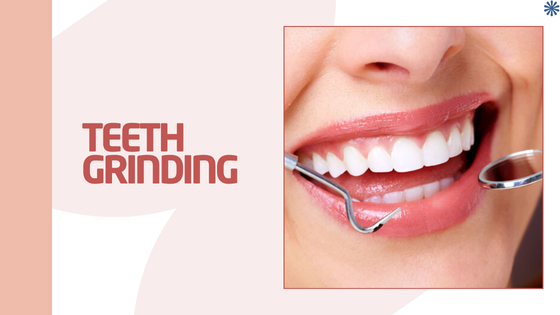
Teeth grinding, medically referred to as bruxism, is a common condition where individuals involuntarily clench, grind, or gnash their teeth. This often happens during sleep, though it can occur while awake as well. Bruxism can affect anyone, irrespective of age, and it poses various risks to dental health. Understanding the causes, symptoms, and treatment options for teeth grinding is essential in addressing this potentially harmful habit. Clinics like Suratorthosurgery provide comprehensive ข้อมลของการนอนกัดฟัน (Bruxism), evaluations and treatments for individuals suffering from bruxism, offering expertise and tailored solutions to prevent further dental issues.
Causes of Teeth Grinding
Several factors contribute to the development of bruxism. One significant cause is stress or anxiety. Individuals dealing with high levels of stress might unknowingly clench or grind their teeth as a physical response to their emotional state. Moreover, habits formed during heightened states of concentration, like chewing on pens or fingernails, can also transition into bruxism.
Other contributing factors include sleep disorders such as sleep apnea, misalignment of teeth (malocclusion), and certain lifestyle choices like excessive caffeine or alcohol intake. In children, bruxism is often linked to the growth and development phases, such as teething or jaw misalignment.
Symptoms and Complications
The symptoms of bruxism can range from mild to severe and may include:
- Persistent headaches, often starting from the temples
- Earaches not related to ear infections
- Soreness or stiffness in the jaw, neck, or face muscles
- Increased tooth sensitivity
- Chipped, cracked, or flattened teeth
- Disrupted sleep for those sharing a bed with the affected individual
Severe bruxism may lead to more serious complications such as significant dental damage, temporomandibular joint (TMJ) disorders, and even jaw dislocation in extreme cases. If you suspect you or a loved one might be suffering from bruxism, it is crucial to seek professional help to avoid long-term dental issues.

Diagnosis and Treatment
Diagnosis of bruxism typically involves a thorough dental examination, assessment of patient history, and sometimes overnight sleep studies. The dental team at clinics like Suratorthosurgery can assist in identifying and diagnosing teeth grinding through various specialized diagnostic tools and techniques.
Treating bruxism focuses on reducing symptoms and preventing further dental damage. Common approaches include:
- Stress Management: Since stress is a primary trigger for teeth grinding, techniques such as meditation, yoga, and cognitive-behavioral therapy can be highly beneficial.
- Dental Guards and Splints: Custom-made dental appliances like mouth guards or splints, provided by clinics such as Suratorthosurgery, protect teeth and reduce grinding during sleep.
- Correcting Dental Misalignment: In cases where bruxism is caused by misaligned teeth, orthodontic treatments or corrective dental procedures may be necessary.
- Lifestyle Adjustments: Reducing the intake of stimulants such as caffeine and alcohol, quitting smoking, and avoiding chewing on non-food items can decrease the likelihood of teeth grinding.
- Medications: In some cases, muscle relaxants or medications to manage anxiety and stress may be prescribed.
Preventing Teeth Grinding
Taking proactive steps can significantly minimize the risk and impact of bruxism. It’s essential to maintain good sleep hygiene, which includes having a comfortable sleep environment and adhering to regular sleep routines. Breaking habits that encourage bruxism, such as chewing on pens or biting nails, can also make a difference.
Regular dental check-ups play a crucial role in the early detection and management of bruxism. Dentists can identify early signs of wear and tear on the teeth and develop a tailored treatment plan to prevent further damage.
In Conclusion
While teeth grinding is a common issue, it should not be ignored due to the potential risks it poses to dental health. Understanding the causes, symptoms, and treatment options is vital for managing bruxism effectively. By seeking help from specialized clinics like Suratorthosurgery and incorporating stress management and lifestyle changes, individuals can find relief and protect their dental health from the adverse effects of teeth grinding.


